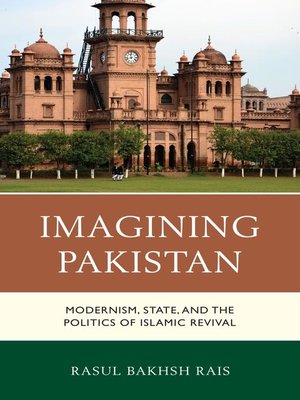Imagining Pakistan
ebook ∣ Modernism, State, and the Politics of Islamic Revival
By Rasul Bakhsh Rais

Sign up to save your library
With an OverDrive account, you can save your favorite libraries for at-a-glance information about availability. Find out more about OverDrive accounts.
Find this title in Libby, the library reading app by OverDrive.



Search for a digital library with this title
Title found at these libraries:
| Loading... |
Imagining Pakistan argues that the creation of Pakistan is a result of Muslim modernism in the Subcontinent, as it defined the struggle for identity, nationalism, and empowerment of Muslim communities. This modernist movement represented the ideals of inclusivity, equal rights, a liberal constitutional framework, and a shared sense of political community among diverse ethnic and regional groups. However, while this modernity was the ideal of Pakistan's founders, it faced resistance from Islamists obsessed with recovering a past legacy of lost Muslim glory. A major threat to political modernism also came from the military that wanted to create a strong and secure Pakistan through 'controlled' democracy. Multiple interventions by the military and deviations from the foundational republican ideas left Pakistan in the rough sea of power struggles, causing institutional decay and creating space for the rise of radical Islam. Imagining Pakistan analyzes the institutional imbalance between the military and the civilian groups, the idea of the security state, and the Islamist social forces and movements that have been engaged in the politics of Islamic revival. It argues that Pakistan's stability, security and progress will depend on pursuing the path of political modernity. Although the restoration of parliamentary democracy and the resilience of the Pakistani society are hopeful signs, resolving the critical issues that Pakistan faces today will require consolidation of democracy, better leadership, and a moderate and modernist vision of both, the state and the society.






